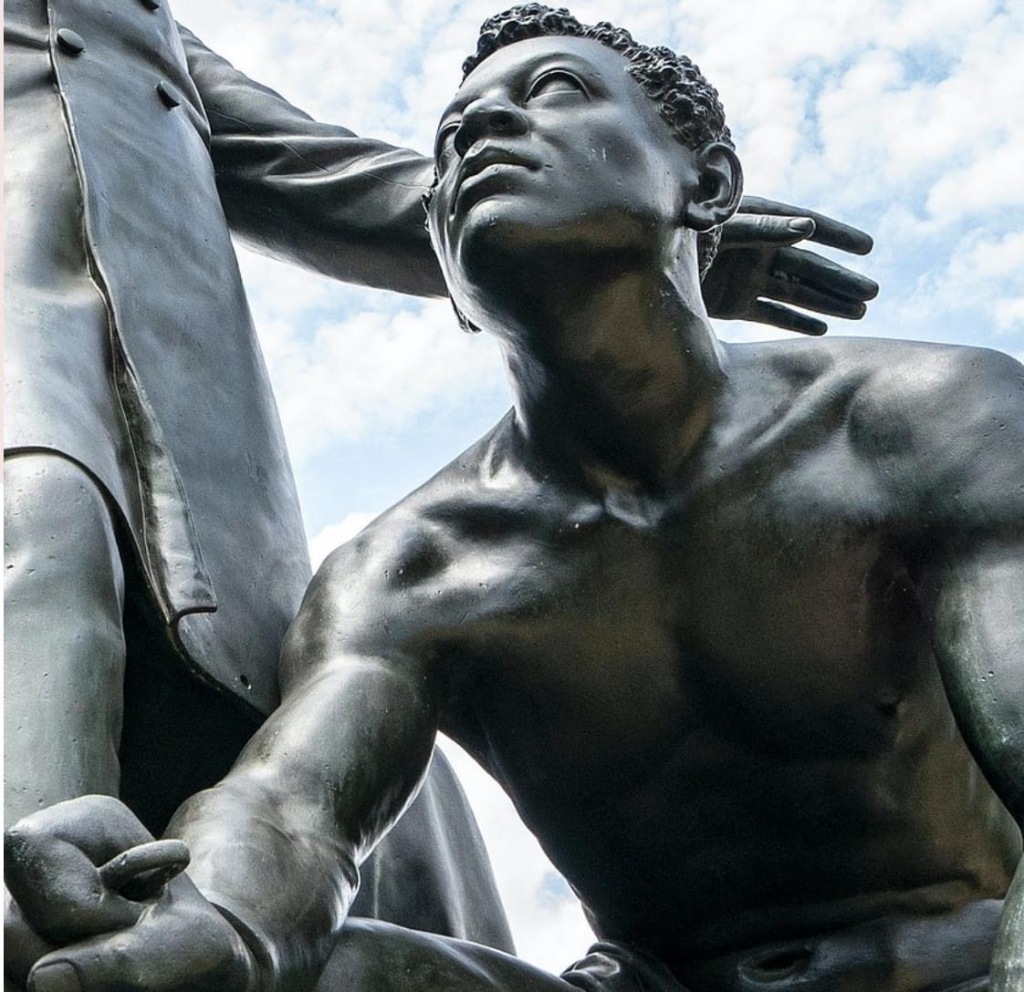Look closely at the look on Archer Alexander’s face. Have you seen this memorial before? It was dedicated in 1876, with over 25,000 black people attending and its original name is the Freedom Memorial. It was entirely paid for by thousands of formerly enslaved black people. Freedom seekers who had fled their enslavers and joined the Union’s U.S Colored Troops. Freedom seekers who had fled their enslavers and found refuge in Contraband camps. Freedom seekers who had used the Underground Railroad and made their way north to safety. All inspired by a black woman in Marietta Ohio who gave her first $5 earned in freedom. That is what we are about to celebrate with Juneteenth.
Who was this man? In 1863, he overheard the area men, Confederate sympathizers, plotting to destroy an area bridge that was a vital link for the Union troops in the slave state of Missouri. Instead of doing nothing, he risked his life to inform them of the danger. Discovered, he took sixteen other freedom seekers with him on the Underground Railroad. He made his way to St. Louis where he was taken in and given protection by the Western Sanitary Commission. On September 24, 1863, he was given his freedom, as his enslaver was found guilty of treason, using Congress’ Confiscation Act of July 1862.

When Charlotte Scott heard of Lincoln’s assassination, Missouri had already had its’ Emancipation Day. She spoke out and begged that there be a memorial to the “best friend the colored folk had ever had” President Lincoln. Who would step forward and see that the fundraising was truly the work of the formerly enslaved, but the Western Sanitary Commission. And when the time came, to see that a memorial was made, they placed the face of Archer Alexander, as the face of freedom, on the Freedom Memorial, a national monument in Washington, D.C. The Western Sanitary Commission was a private, not government, benevolent organization that raised hundreds of thousands of dollars; and erected hospitals, paid for doctors and nurses, and helped the enslaved, the contraband, and the freedom seekers everywhere during the Civil War.
Archer Alexander died on December 8, 1880, and was buried in an unmarked grave in a common lot in St. Peter’s United Church of Christ Cemetery near St. Louis. A grave that was paid for by the Western Sanitary Commission. In 2019, historians and his family discovered the location, and in 2024 the sculptor Abraham Mohler began a fundraising campaign for a new memorial at the cemetery. Archer Alexander is the great-great-great grandfather of Muhammad Ali. Archer’s face will remain the same, with a look of awe at the prospect of freedom, only this time leading his friends towards freedom. The freedom that began with emancipation – and the reason for the joyous celebrations we celebrate on Juneteenth – the celebration of Freedom! Freedom seeker Archer Alexander is listed on the National Underground Railroad Network to Freedom, which recognizes over 700 similar sites and stories.

Leave a comment